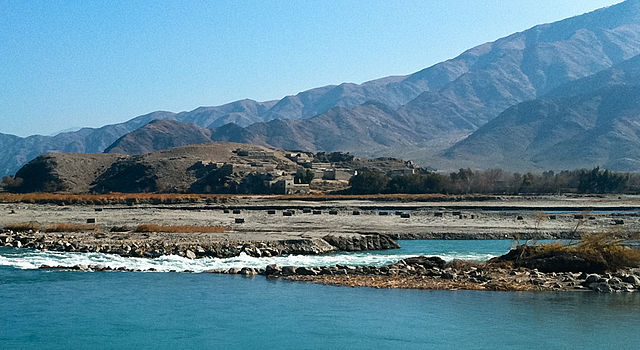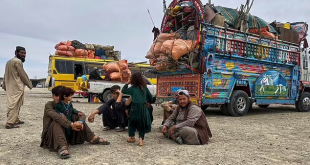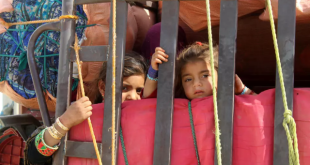Thousands of acres of agricultural lands are destroyed or damaged annually in the spring floods across Afghanistan, particularly in the central, north, east and west north provinces. Human casualties are other calamity of this natural disaster.
The flood makes a border problem as well, as it damages the Afghanistan side of the Oxus River banks which are located lower than the river. People in the provinces of Kunduz, Balkh, Jauzjan and Faryab say they lose their farmlands due to the flash floods every year. Apart from the damage of the locals’ properties, the disaster removes parts of our territory. That is a chronic problem and the governments have paid less attention for the solution. The governments actually neglect the border issues which are very important and we can overcome in not a long time and with a light budget. The Central Asian countries bordering Afghanistan advance their soils by building retaining walls along the Oxus, claiming that they share half of the river, while the southern and lower part of the Oxus loses soil.
These waters are wasted at a time while the world in general and the region in particular are facing water problem. The mountainous Afghanistan is the source of water to its south-eastern and western neighbors and is generously granting it to them as people at home face the shortage of potable water.
Afghanistan can earn great amounts from its flowing waters if the governments manage them correctly. We are spending millions of dollars to our neighbors for the electricity, while we can produce it at home. Tajikistan and Uzbekistan also produce hydroelectricity.
Our authorities should realize this fact that this country belongs to their ancestors, it belongs to them and to their offspring. The people whom they are ruling are their brothers and sisters. So, they have the responsibility to serve their country and their brothers and sisters.
We can supply the water to the neighboring countries but we should give priority to our own people. Water that people in the country do not need, should be let go abroad. We must have electricity, our farmlands must be irrigated and every Afghan must have access to drinkable water. Two ministries are the in charges of water affairs, but unfortunately, none of them is interested to work and they are just ‘policy-makers’ as they themselves say.
The neighbors enjoy millions of cubic-meter waters from Afghanistan, but they appreciate Afghans with bullets and terrorism.
 Afghanistan Times
Afghanistan Times




